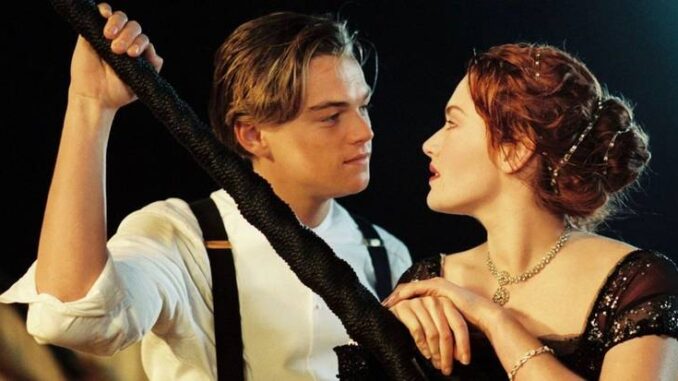
The legend of Titanic is etched into the collective consciousness, a grand, tragic romance played out against the backdrop of an unsinkable ship. We know the sweeping score, the iconic dialogue, and the heart-wrenching visual of a love lost to the icy Atlantic. But beneath the surface of this cinematic behemoth, much like the ship itself, lie deeper currents, untold stories of pivotal decisions and personal struggles that shaped the masterpiece we remember. Two such narratives intertwine at the heart of the film's creation: the raw, defiant journey of Kate Winslet and the tantalizing near-miss of the actor who almost, almost, became Jack Dawson.
Kate Winslet, unlike the ethereal Rose DeWitt Bukater she would portray, was not a delicate flower waiting to be discovered. She was a force of nature, a defiant torrent against the current of expectation. Before Titanic, Winslet had already carved a niche with intense, independent roles in films like Heavenly Creatures and Sense and Sensibility. Yet, for Titanic, she had to fight. James Cameron, a director known for his exacting vision, wasn't immediately convinced. He saw talent, but perhaps not the star power he envisioned for his epic. Winslet, however, saw Rose within herself. She pursued Cameron relentlessly, bombarding him with calls, sending him roses with notes proclaiming, "I am Rose. You're crazy if you don't cast me." This wasn't merely ambition; it was an intuitive understanding of a character that resonated with her very being.
Once cast, Winslet’s “untold story” truly began in the grueling, often brutal conditions of the Titanic set. While Leonardo DiCaprio famously complained about the cold, Winslet embraced it, diving into the frigid waters of the tank, enduring long hours, and pushing her physical and emotional limits. Her commitment was absolute. She was a performer fully inhabiting her role, enduring hypothermia and exhaustion for the sake of authenticity. This wasn't just acting; it was an immersion that bordered on Method, forging a bond with DiCaprio that transcended the screen and became a lifelong friendship. This shared crucible undeniably fueled the electric chemistry that crackled between Jack and Rose, elevating their love story from a mere plot device to the throbbing heart of the film.
Meanwhile, another narrative unfolded in the casting room, a tale of what-ifs and near-misses that could have irrevocably altered cinematic history. Before Leonardo DiCaprio embodied the charming, free-spirited Jack, another talented actor stood tantalizingly close to the precipice of cinematic immortality: Jeremy Sisto. Sisto, known for his roles in Clueless and later Six Feet Under, screen-tested for Jack. And he was good. Footage of his chemistry read with Winslet shows a competent, earnest performance, a believable spark. He had the looks, the talent, and the easygoing demeanor. For a brief, flickering moment, it seemed entirely possible that he would be the one to utter, "I'm the king of the world!"
But James Cameron, with his almost preternatural instinct for the right fit, saw something missing. He later articulated it as a need for a "poetic, artistic presence," an intangible spark that went beyond mere acting. DiCaprio, then a rising star with a brooding intensity and a youthful vulnerability, possessed that elusive quality. He had a way of conveying profound emotion with just a glance, a raw, untamed spirit that perfectly captured Jack's ephemeral nature. Winslet, present for these screen tests, was herself a witness to this parade of potential Jacks, likely feeling the subtle shifts in chemistry and energy with each new face. When DiCaprio arrived, it was as if a missing piece clicked into place, not just for Cameron, but for Winslet herself, laying the groundwork for their legendary on-screen partnership.
This pivotal decision — the choice of DiCaprio over Sisto — ripples through Titanic's legacy. Would Sisto have imbued Jack with the same iconic blend of charm and melancholy? Would the "Leo-Mania" that swept the globe have been ignited by another actor? It’s impossible to say, but what is clear is that DiCaprio brought an almost fated quality to the role, a magnetic pull that made the tragic ending all the more devastating. He perfectly complemented Winslet's fiery Rose, creating a dynamic that transcended conventional romance, becoming a symbol of passionate, youthful abandon against the backdrop of impending doom.
For Winslet, the post-Titanic story was also one of recalibration. The film’s colossal success catapulted her into a maelstrom of celebrity she was ill-prepared for and fundamentally uncomfortable with. She became "Rose" to millions, adored and scrutinized. Her "untold story" here is of resisting the easy path, the typecasting, the pressure to maintain a glossy, Hollywood facade. Instead, she deliberately gravitated towards smaller, more challenging independent films, shunning the blockbusters that would have capitalized on her newfound fame. She sought roles that allowed her to stretch, to explore the complexities of human emotion, fiercely determined to prove herself as an actress beyond the shadow of a single iconic role. It was a conscious act of self-preservation, a quiet rebellion against the very machinery that had made her a global phenomenon.
Ultimately, Titanic is more than just a film; it’s a cultural touchstone born from a confluence of titanic ambition, relentless dedication, and the delicate alchemy of casting. Kate Winslet's untold story is one of unwavering resolve, of a performer who fought for her role and then poured her entire being into it, enduring the physical and emotional crucible of its creation. The actor who almost played Jack represents the razor-thin margins of fate, the pivotal moments where a single decision can alter the course of history, both cinematic and personal. Together, these narratives remind us that the magic we see on screen is often the culmination of unseen battles, gut instincts, and a touch of serendipity, shaping not just the art itself, but the lives and legacies of those who dared to bring it to life.